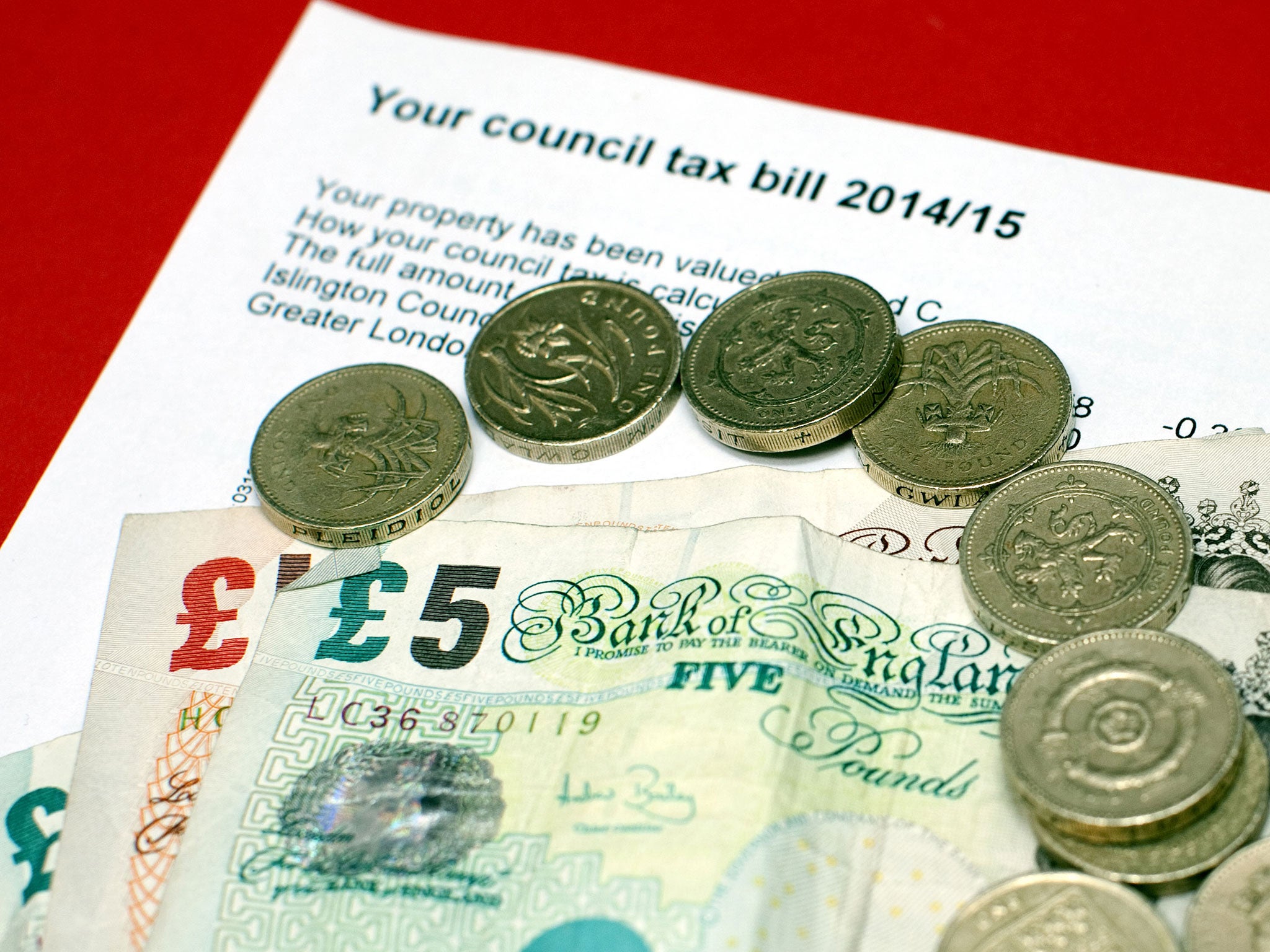Families face biggest council-tax increase in eight years
Authorities able to raise council-tax charges by up to 3.99 per cent in 2016-17 without having to call a local referendum

Your support helps us to tell the story
From reproductive rights to climate change to Big Tech, The Independent is on the ground when the story is developing. Whether it's investigating the financials of Elon Musk's pro-Trump PAC or producing our latest documentary, 'The A Word', which shines a light on the American women fighting for reproductive rights, we know how important it is to parse out the facts from the messaging.
At such a critical moment in US history, we need reporters on the ground. Your donation allows us to keep sending journalists to speak to both sides of the story.
The Independent is trusted by Americans across the entire political spectrum. And unlike many other quality news outlets, we choose not to lock Americans out of our reporting and analysis with paywalls. We believe quality journalism should be available to everyone, paid for by those who can afford it.
Your support makes all the difference.Families face their biggest council-tax increases for eight years with the average bill set to jump by nearly £50 in England and Wales, news figures reveal.
Following a change in the rules by Chancellor George Osborne, authorities will be able to raise council-tax charges by up to 3.99 per cent in 2016-17 without having to call a local referendum.
Dozens are preparing to put bills up by the maximum amount, with many more planning rises a fraction under. Council tax is set to go up by average of 3.6 per cent in England outside London, taking the annual bill for a band D property to £1,574, a rise of £54. The rise for the country including the capital will be 3.1 per cent, or £46 a year. In Wales the average increase is also set to be 3.6 per cent.
The planned rises, which follow a six-year squeeze on council finances, contrast with the inflation rate, which is barely above zero.
The Chartered Institute of Public Finance and Accountancy, which calculated the figures, said the rises would be the highest since 2008-09.
Communities Secretary Greg Clark said: “Our historic four-year funding deal for councils both gives them certainty to plan ahead, and meets the clear request to prioritise care for our elderly population with a £3.5bn social care funding package.
“It means councils have the freedom to set a social care precept as part of local bills, with excessive council tax increases still subject to local referendum to protect council taxpayers.
“Even with these changes council tax will still be lower in real terms in 2019-20 than in 2009-10 – and this year’s increase will still be lower than the average 6.2 per cent annual increase between 1997 and 2010.”
Join our commenting forum
Join thought-provoking conversations, follow other Independent readers and see their replies
Comments